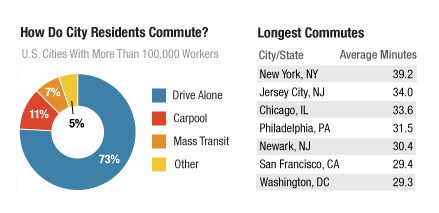Work, productivity, and driverless cars
The last 30 years or so have seen the dramatic impact of technology upon the workplace - from the PC revolution, to email, to sophisticated ERP systems to better manage the flow of material and information, all the way to the present day, where social, mobile, and video technologies continue to disrupt how, where, and with whom work gets done. Certainly the workplaces and the methods of getting work done, almost to a job, look nothing today like they did just 15 or 20 years ago. And no doubt technology will continue to advance and impact work - what the future of wearable computing like Google Glass holds is of particular interest to me.
But our friends at Google are at the forefront of another new technology development that also has the potential to dramatically alter work and productivity - perhaps just not in the ways we are accustomed to seeing how workplace technology changes our jobs, patterns, and behaviors. While Google Glass has enormous disruptive potential, in some ways the autonomous car, being developed at Google (and several other places as well), perhaps has the potential to have a more direct and sudden effect on work and how work gets done, (and how much more of it potentially gets done).
According to recent statistics, workers in large US cities spend as much as 40 minutes each-way commuting to work, and just about 75% of them make the journey by themselves in their car. In the worst cities for commuting, perhaps a city where your organization has facilities, as many as 3/4 of your workers are, on average, spending more than an hour each day in their cars, stressed, getting frustrated, and with the exception of the occasional business call, (taken 'hands-free' of course), getting almost nothing productive accomplished.
The driverless car - and don't think it is THAT far away from becoming a reality, Google's testing has logged well over 300K miles so far - would instantly transform that hour or hour and a half from empty time to potentially productive time. From the Google piece linked above:
This is an important milestone, as it brings this technology one step closer to every commuter. One day we hope this capability will enable people to be more productive in their cars.
Imagine cleaning our your entire email Inbox before arriving at work, or having that conference call with clients while actually paying attention, or even doing a video chat with colleagues that are kicking back in their driverless cars on the way to the office.
If the recent hubbub from Yahoo! and Best Buy around the need for employees 'physically being together' catches on more widely - then it will just put more workers back on the road. Driverless cars are the one technology solution that has the potential to almost instantly turn down time into productive time, and enable your commuting workers to take back just a little bit of their lives. Which is kind of ironically what teleworking policies were meant to do.
The next great workplace tech breakthrough just might be the one that takes you to the workplace.

 Steve
Steve
Reader Comments (1)
In U.S. 75% of workers go to their workplace through their own car. So they spend much time in their cars. This is the wastage of time so this time can be managed in a productivity way. Driverless cars is a car which runs automatically without the help of a driver. In driverless car the car owner can utilize the time by doing some office work through his computer on the the way to office.